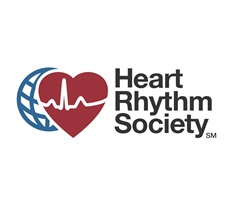
The US Heart Rhythm Society (HRS) has released a framework outlining criteria for establishing an atrial fibrillation (AF) centre of excellence (CoE) and key operational standards to provide multidisciplinary care for AF patients.
A recent HRS press release notes that providing high-quality care for AF demands a specialised centre for early diagnosis and prompt multidisciplinary treatment in order to reduce the risks of stroke, heart failure, and mortality, ensuring patients receive appropriate interventions to restore normal heart rhythm while addressing underlying risk factors.
Previously, in 2020, the HRS released a position paper announcing the rationale for creating integrated, highly functioning AF CoEs.
This new framework—developed in collaboration with experts from 19 international institutions—outlines the requirements for becoming an AF CoE and describes the expectations for maintaining this status to ensure exceptional patient care. According to the HRS, these centres will serve as specialised hubs to improve patient outcomes, streamline care coordination, and enhance the quality of life for those affected by AF.
“Optimal, coordinated care for atrial fibrillation is best delivered at centres of excellence, where comprehensive education, resources and data-driven approaches ensure the highest standard of treatment,” said T Jared Bunch (University of Utah Health, Salt Lake City, USA), chair of the AF CoE taskforce. “HRS believes that all healthcare facilities, whether academic or non-academic, urban or rural, can achieve excellence in atrial fibrillation care by following fundamental principles and collaborating across health systems when needed.”
The framework offers a blueprint and checklist for establishing an AF CoE, outlining five key pillars: early patient identification and access; evidence-based care pathways; optimisation of electrophysiology procedures; outcomes reporting; and comprehensive education.
To facilitate adoption and scalability, the AF CoE concept also incorporates a ‘tiers for accountability’ model, allowing centres to assess their progress from foundational to comprehensive levels of performance. Recognising that not all institutions have facilities that can provide the full spectrum of services required to care for AF patients, this framework also introduces the concept of ‘AF cooperatives’—formalised partnerships between institutions designed to ensure access to specialised care.
The full document was published on 23 April in an online edition of the journal Heart Rhythm.









